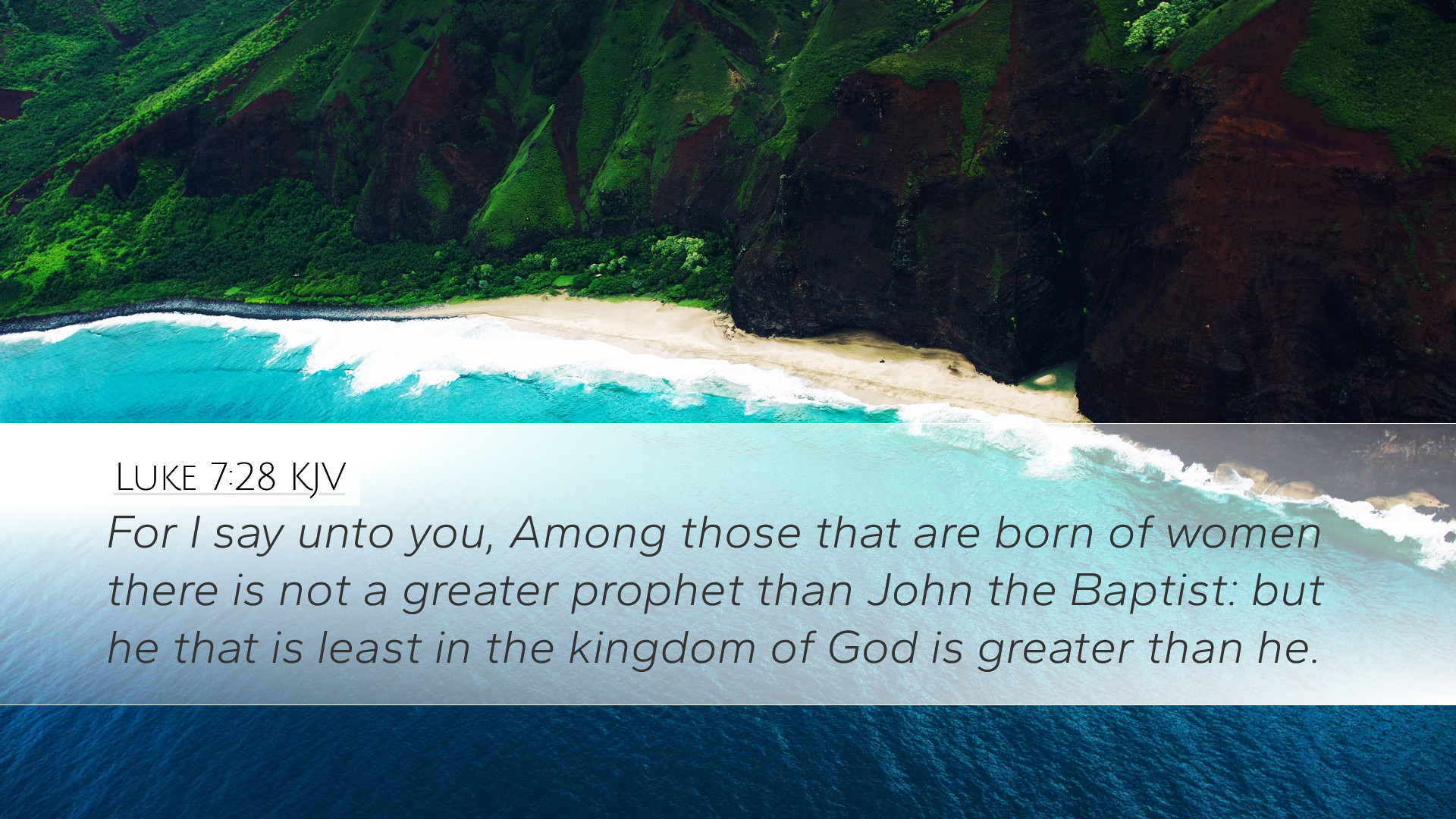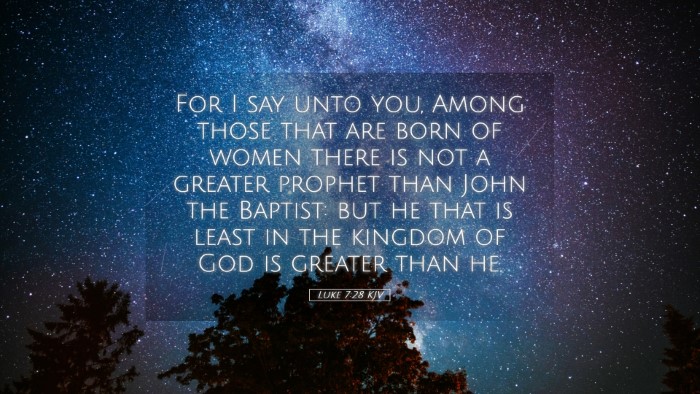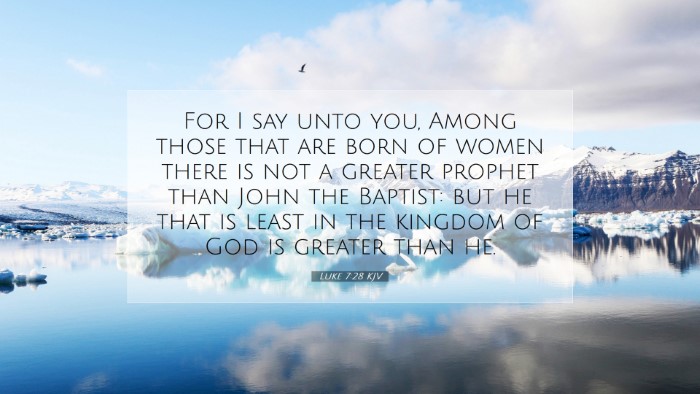Luke 7:28 (KJV): "For I say unto you, Among those that are born of women there is not a greater prophet than John the Baptist: but he that is least in the kingdom of God is greater than he."
Introduction
The statement made by Jesus regarding John the Baptist, as recorded in Luke 7:28, is profound and layered with theological significance. This commentary combines insights from notable public domain scholars including Matthew Henry, Albert Barnes, and Adam Clarke, providing a comprehensive understanding of the verse specially tailored for pastors, students, theologians, and Bible scholars.
Contextual Analysis
Understanding the context of this verse within the Gospel of Luke is critical. Prior to this declaration, Jesus had been performing miracles and teaching in Galilee. He received a delegation from John the Baptist, who was imprisoned and sent to inquire if Jesus was indeed the Messiah. This query reflects John's uncertainty, a remarkable human moment that underscores his profound role in God's plan.
John the Baptist's Importance
Jesus' declaration that John is the greatest prophet born of women underscores the pivotal role John played in redemptive history. According to Matthew Henry, John was the bridge between the Old Covenant and the New Testament. He fulfilled the prophetic role by heralding the coming of Christ, emphasizing the need for repentance.
- Theological Significance: John’s prophetic ministry was unique; he not only proclaimed the coming Messiah but also baptized Him, recognizing Jesus’ true identity in a way no other prophet had.
- Fulfillment of Prophecy: As a forerunner, John's life and ministry fulfilled numerous Old Testament prophecies, marking him as a significant figure in God’s plan.
The Statement of Greatness
When Jesus proclaims, "there is not a greater prophet than John the Baptist," He emphasizes John's unparalleled role in the prophetic lineage. Albert Barnes comments that this greatness is not merely about John's actions but also about his character and the authority of his message, which called the people to genuine repentance.
However, the latter part of the verse introduces a significant contrast. Jesus asserts that "he that is least in the kingdom of God is greater than he." This statement reshapes the understanding of greatness, shifting the focus from earthly achievements and accolades to a new identity in Christ.
Greater Than John
What does it mean that the least in the kingdom of God is greater than John? Adam Clarke posits that this reflects the privileges and realities of the New Covenant. While John was a prophet with a crucial role, he was still under the law. Those who follow Christ are partakers of a new and greater covenant, having direct access to God through the Spirit.
- New Covenant Privileges: Believers in Christ have received the Holy Spirit, enabling them to understand and experience the fullness of God's presence.
- Access to God: Unlike John, who pointed to the coming Messiah, believers now live in the reality of Christ's atoning work—this access to God is a greater privilege.
Pastoral Applications
Pastors can derive several significant applications from this text:
- Humility in Ministry: The call to greatness in the Kingdom is a call to humility. As ministers, acknowledging that we are all God's servants, regardless of our roles, reflects the heart of the Gospel.
- Valuing Every Believer: Every believer, regardless of their status, is equipped to contribute to the Kingdom of God. This elevates the importance of each individual in the body of Christ.
- Embracing the New Covenant: Encouraging the congregation to embrace and live out the realities of the New Covenant fosters a deeper relationship with God.
Theological Implications
This verse invites deeper theological reflection:
- Understanding Prophetical Roles: It redefines what it means to be a prophet in the context of Christ's fulfillment of the law and the prophets.
- The Nature of Greatness: It challenges the conventional understanding of greatness in society against a kingdom-oriented perspective that values servanthood, humility, and access to divine grace.
- Covenantal Theological Reflection: It deepens our appreciation for the work of Christ that brings believers into a personal relationship with God, marking a significant shift from the old covenant mediated through the law.
Conclusion
Luke 7:28 encapsulates significant insights into the ministry of John the Baptist and the transformative nature of the New Covenant established through Jesus Christ. This verse remains a profound reminder of the humility required in ministry and the extraordinary privileges bestowed upon believers. As we reflect on this teaching, may we embody the heart of the Gospel, recognizing our role as heirs of the Kingdom while honoring those who have paved the way before us.


